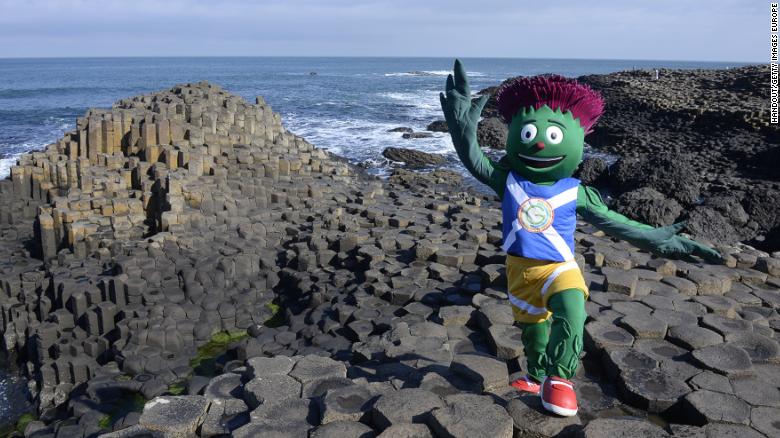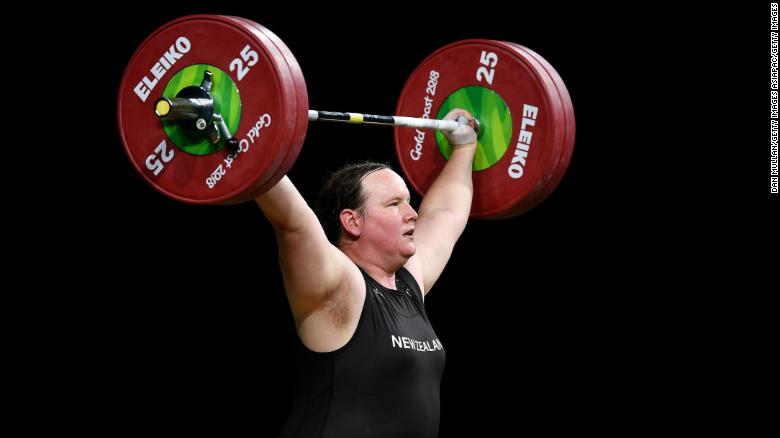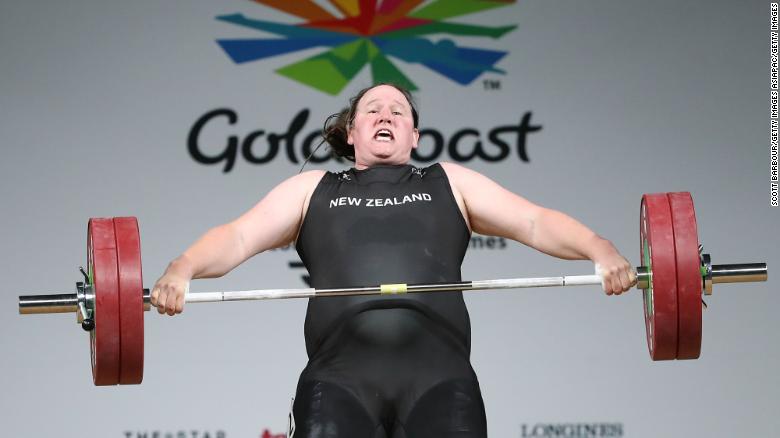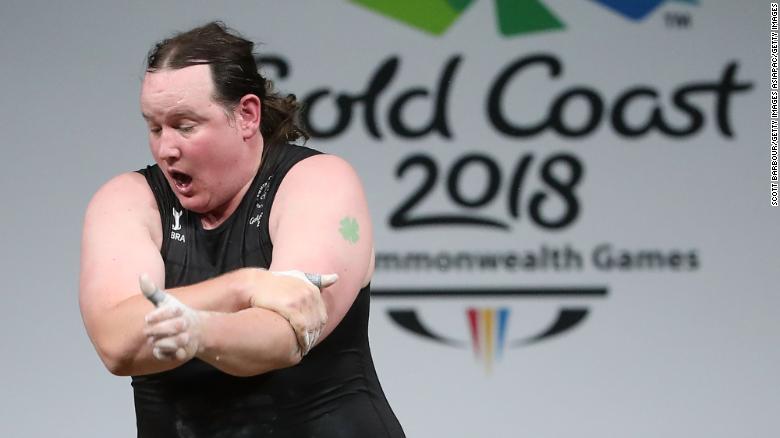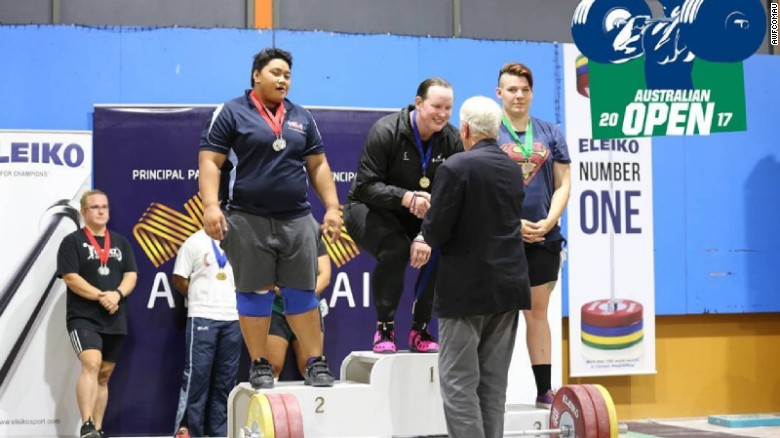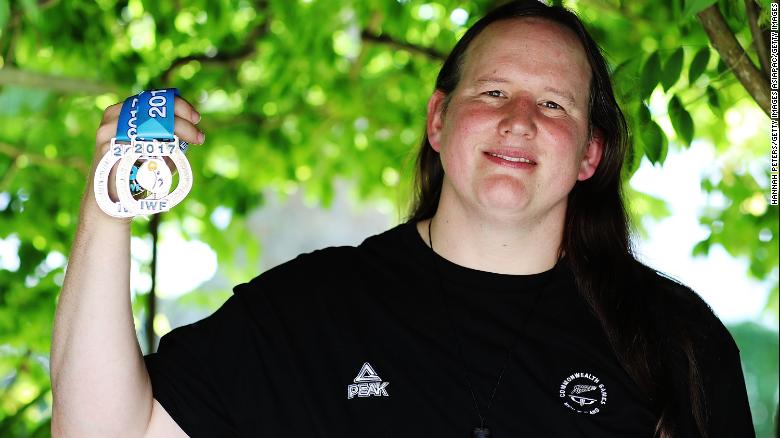
MUST WATCH
Story highlights
- Transgender weightlifter Laurel Hubbard suffers "career-ending" injury
- Kiwi, formerly known as Gavin Hubbard, looked set to win Commonwealth gold
- Debate surrounding transgender athletes' inclusion rages on
(CNN)A gruesome injury means she'll likely never compete again but transgender weightlifter Laurel Hubbard has prompted a debate that will endure.
The Kiwi -- who lived as Gavin Hubbard until 2014 -- looked certain to claim Commonwealth gold in the 90kg+ division at the Gold Coast Games this week, until disaster struck.
While her rivals mostly undertook snatch lifts of under 100kg, Hubbard had raised 120kg on her first attempt. With a considerable lead already assured, the 40-year-old promptly stepped it up to 132kg -- enough for a Commonwealth record. It proved too much.
Hubbard's arm buckled to the horror of the crowd, leaving her unable to continue in the second aspect of the competition, known as the clean & jerk.
Instead Samoa's Feagaiga Stowers won the gold medal, with Charisma Amoe-Tarrant of Nauru and Emily Campbell of England taking silver and bronze respectively.
Yet it is the competitor with "DNF" beside her name that has made global headlines.
"I am waiting to see specialists back in New Zealand but it is likely the ruptured ligament in my arm will be career-ending," Hubbard said in a statement sent to CNN.
"I have always believed it is not enough just to wear the silver fern and I do not regret pushing myself to try to deliver my best possible performance."
History
Hubbard, whose father is a former mayor of Auckland City, would have been the first ever transgender gold medalist in the history of Olympic or Commonwealth competition.
Her participation alone elicited mixed responses.
Just last month Australian Weightlifting Federation chief executive Michael Keelan protested against the New Zealander's right to compete, arguing weightlifting has "always been a gender-specific sport" -- a stance shared by Samoa's head coach, Jerry Wallwork.
"A man is a man and a woman is a woman, and I know a lot of changes have gone through, but in the past Laurel Hubbard used to be a male champion weightlifter," Wallwork told reporters before the competition began Monday.
"The strength is still there and I think it's very unfair, and for all females it's unfair."
'Fairness, non-discrimination and inclusion'
Despite setting national junior records as a male weightlifter, Hubbard isn't breaking any rules.
The International Olympic Committee decrees that male-to-female transgender athletes must undergo hormone therapy and demonstrate testosterone levels of below 10 nanomols per liter for at least one year leading up to and during competition.
Such athletes must also declare their "gender identity" is female for a minimum of four years.
Hubbard transitioned in her mid-30s and accordingly does not fall foul of either ruling.
But her compatriot and fellow weightlifter Tracey Lambrechs feels she has had an "unfair advantage."
"I feel there is an unfair advantage even though it is within all the regulations... all I can hope is that they look into it and make a more educated judgment," Lambrechs said
, in quotes carried by Radio New Zealand.
Lambrechs represented New Zealand at the Rio 2016 Olympics, but has
reportedly been forced to shed as much as 17kg and drop weight classes to the -90kg division to give way to Hubbard in the higher weight class.
"I am glad that people can come out and live their lives and be happy but when it comes to a professional sporting environment it gets a bit trickier," said Lambrechs. "(She) is lifting a lot more than what the other women are... so personally I do think there is an unfair advantage."
Hubbard's career trajectory bears witness to the physical benefits she has gained.
From barely causing so much as a ripple at the senior international level when competing as a man, the weightlifter took to the podium twice last year in her maiden World Championship as a woman.
However it's worth noting that nine countries -- including China and Russia -- were suspended from that 2017 event as the International Weightlifting Federation attempts to resolve an endemic doping culture.
Consequently a number of the sport's leading heavyweights, including Russian world record holder Tatiana Kashirina, were absent -- something Hubbard has ascribed to her success.
But her achievement remains significant: No Kiwi lifter had ever previously won a World Championship medal in any weight category.
'She's human, like the rest of us'
In the end American Sarah Robles edged Hubbard to the World Championship gold in Anaheim, California.
Robles's coach, Tim Swords, had expressed skepticism ahead of the event, saying: "I do not want to say anything negative, but in my humble opinion this is not fair."
Robles herself, though, became one of a growing number that have embraced the transgender weightlifter.
"It was wonderful -- she gave me a big hug and wished me luck for the following day, and I really believe she meant it, too," Hubbard
told NZ Newswire.
"It's kind of cool when you've got people at that level who are prepared to just focus on themselves and focus on the competition. It takes a certain amount of grace."
Campbell, Commonwealth bronze medalist in Hubbard's division, was similarly supportive this week.
"She just wants to lift. That's all she wants to do, come out and lift, have a good time and enjoy doing what we love to do," the English weightlifter told reporters.
"People shouldn't be making comments and making her feel horrible for doing something she loves to do.
"She's human, like the rest of us. It doesn't always go right, doesn't always go to plan.
"I just hope they're mindful of how she feels. She's a person."
